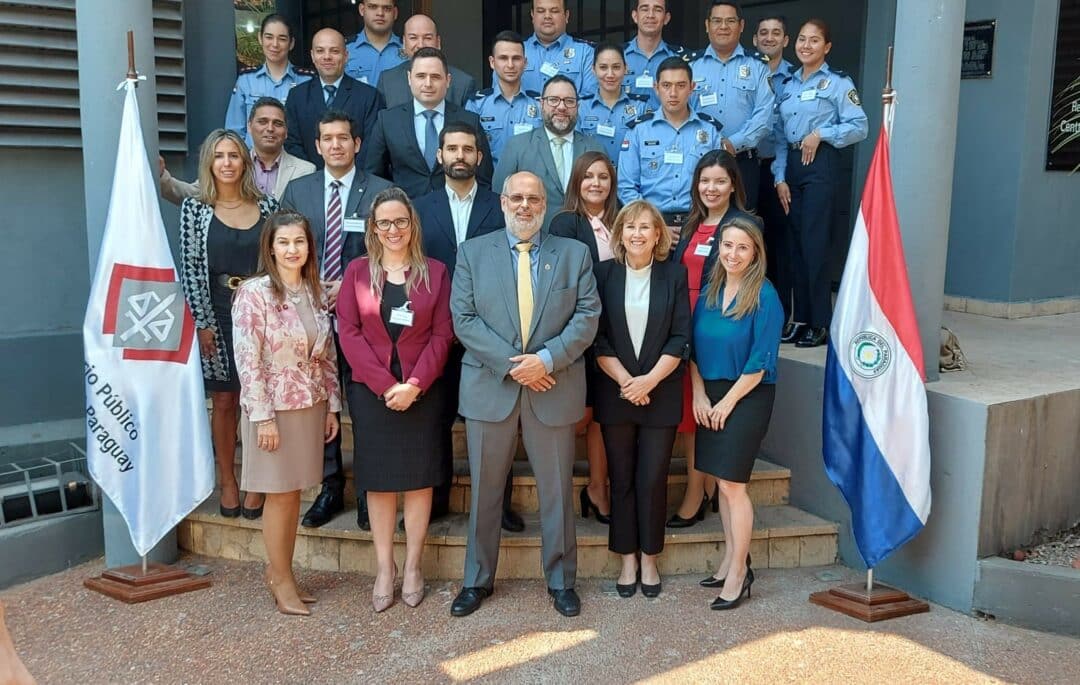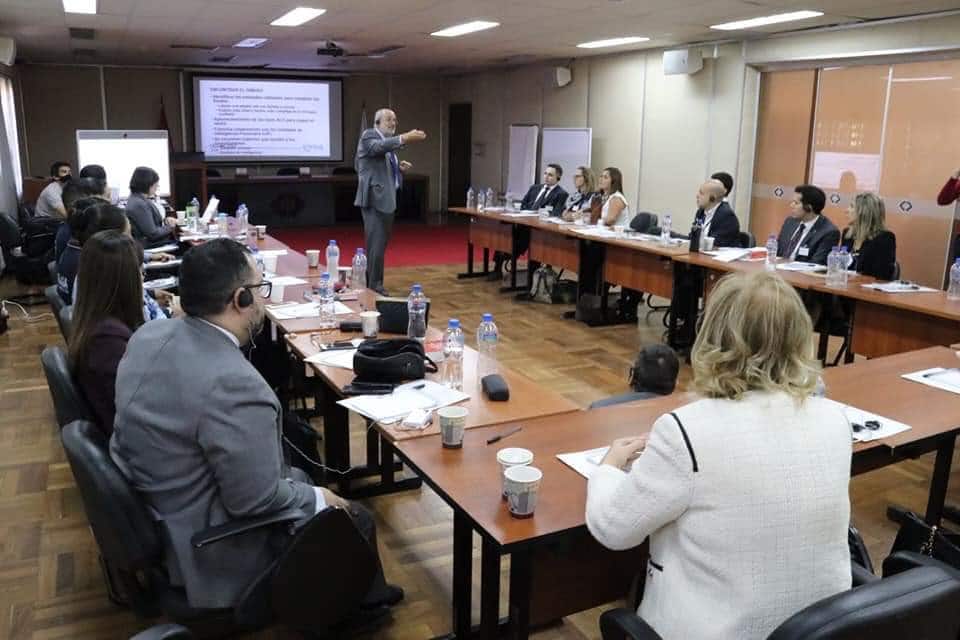Pat Poitevin, Co-founder – Executive Director of the Canadian Centre of Excellence for Anti-Corruption (CCEAC)
The Government of Canada’s Technical Assistance Program (TAP) in partnership with Alinea International is helping Paraguay’s capacity to reduce corruption. The costs and consequences of corruption on the social, political, economic, environmental and security elements of any country are heavy and can be long-lasting.
TAP-EDM tackling Sustainable Development Goals (SDG’s)
With decades of experience as a financial crime investigator with the Royal Canadian Mounted Police and now working as the Executive Director of the Canadian Centre of Excellence for Anti-Corruption (CCEAC), I have had the chance and privilege to travel around the world to provide guidance, advice, lessons learned and training to private and public organizations to help them increase their capacity to fight corruption and support SDGs. In all my travels, I have had the honour to meet highly motivated and competent anti-corruption investigators and prosecutors that are committed to addressing corruption-related crimes despite the many challenges they face.
There are always a few men and women that stand out in a group whom you know are leaders and champions who care about making a difference and addressing some of the systemic issues that fuel corruption. More recently, through the Technical Assistance Partnership-Expert Deployment Mechanism (TAP-EDM), I had the chance to meet such champions on a trip to Paraguay in August 2022. My mission was to provide training and coaching to a group of prosecutors of the UDEA and investigators from the National Police, whose mandate is to investigate and prosecute corruption, money laundering and other financial crimes. The energy, passion, commitment, and competency of participants were palpable and made the training that much more engaging and rewarding, for me as the trainer, as much as for the participants. I am not sure if it was just me or the ‘’bribes’’ of Canadian Maple sugar cookies and candies that motivated them to participate more, but they were certainly motivated. The bonus is that the leadership was not only supportive of the training, but they were committed to building a culture that encouraged innovation and collaboration.
While Paraguay has been recognized for its slow but consistent improvements in tackling corruption in the past 5 years, it is still facing several challenges in terms of capacity and experience in investigating and prosecuting corruption offences. The highly complex and resource intensive nature of such offences requires specialized skills and experience as well as specific investigative processes and approaches.
By sharing lessons, learned, tools strategies and investigative techniques, the training and coaching that was delivered has provided participants with a practical roadmap that will improve their capacity and ability to investigate and prosecute corruption related offences. Additionally, an action plan on seven (7) priority areas that include improving greater inter-agency collaboration and putting some focus on prevention, awareness and targeting bribe givers will also allow them to increase their visibility and impact with the general public and other key stakeholders.
This TAP-EDM project is funded by Global Affairs Canada and managed by Alinea International. With 40 years of experience, helping others build their anti-corruption and financial crime capacity is a privilege that I do not take lightly. My passion has led me to start the not-for profit Canadian Centre of Excellence for Anti-Corruption (CCEAC) and my commitment to collective action and capacity building has led me to work with people, companies, and organizations around the world. Knowing that I can make a difference, however small, motivates me to continue this journey. My small contribution to advancing SDGs in various countries is part of the global effort by countless people and groups that illustrate the power and impact of collective action. It is through this collective action that we will make a real and lasting difference.
To say the need to address corruption is important, is a given, and to include it within SDG # 16 ‘’Peace, justice, and strong institutions,’’ is a fairly easy academic exercise! The reality, however, is that corruption also impacts our ability to address all the other 16 SDG goals directly and indirectly. Not only does corruption thwart economic and social development but it fuels, facilitates, and enable organized crime, terrorism, and other bad actors to operate with impunity and further destroys the ability of motivation of governments to deliver and respond to the needs of its citizens. Indeed, the insidious nature of corruption and its impact on political institutions, leaders, businesses, and people can substantially influence the capacity, ability, credibility, and legitimacy of efforts to develop and sustain all SDG goals. Poverty, inequality, gender equality, sanitation, economic growth, and all other Sustainable Development Goals can be negatively influenced by corruption and corrupt actors in some fashion. Those corrupt actors whose greed and vested interest may be threatened by the SDGs, use bribery and corruption to circumvent and evade action and accountability on those goals. We need collective action to expose and address this reality, but we also need to help countries facing higher corruption risks increase their capacity to address those risks. My call to action is for all of us to look at corruption as a social-economic cancer that threatens all Social Development goals and must be treated and excised – So what can you do about it?


